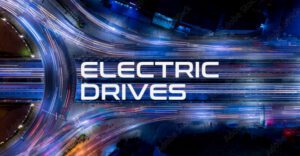Ford Pro commercial vehicle business, the City of London Corporation and DHL Supply Chain are conducting a sustainable delivery trial at London’s historic Billingsgate Market to explore ways to reduce traffic and improve air quality. This trial includes the use of electric vehicles (EVs) to help reduce emissions in the UK capital.
Launched in March and continuing until August, 40 traders at Billingsgate are taking part in the trial, which focuses on deliveries from the market to commercial customers in the capital, including some of London’s most prestigious establishments.
Many traders rely on vans to make these deliveries but for much of the day these vans are not in use. The City Corporation identified the opportunity to consolidate trips, which avoids duplicating journeys and requires fewer vehicles.
Funded by the City Corporation, which owns and manages Billingsgate Market, the trial uses Ford vehicles, software and servicing support from the company’s Ford Pro commercial vehicle division and DHL Supply Chain expertise.
The 18-week collaboration has revealed significant opportunities to benefit both businesses and the environment. There has been an estimated 37 per cent reduction in CO2 emissions compared with business as usual, from 949 fewer vehicle journeys on central London’s congested roads resulting in 15,000 fewer miles driven. This has also supported reduced costs and improved efficiencies for participating businesses.
We are big believers in getting drivers and businesses into electric vehicles to experience their benefits and ease of use firsthand. Plus, understanding the overall cost savings of running costs and the need for less maintenance compared to a regular combustion vehicle. So far, the experience from most involved in this project has been positive.
Youssef Archi, Ish Seafood director said: “The delivery service is now getting better and better, so we’re not using our vans anymore. Before, every time we got a new customer we needed a new van, which was just more headache for us. Now, we can just focus on getting more customers.”
Jeff Steadman, Chamberlain & Thelwell Ltd director, said: “With the markets moving forwards, London’s moving forward. Many major cities are going greener by 2030 and electric is coming into play.
“To have a dedicated service is a very good thing for the market. Customers will be very interested when we go fully green with electric vehicles. Everybody needs to reduce their carbon footprint.”
This trial is part of the City Corporation’s aim to reduce the environmental impact of its wholesale markets through innovation. This includes the planned relocation of Billingsgate, Smithfield and New Spitalfields markets to Dagenham Dock. As part of the trial, electric vehicle charging has been installed in the market car park to support the use of electric delivery vans.
Chris Hayward, City of London Corporation policy chairman, said: “Our historic wholesale markets have been serving Londoners for hundreds of years. But to face up to the climate challenge, we cannot continue with business as usual.
“This pilot has proved that using different modes of delivery not only reduces emissions and traffic but can also offer a better service to both our market traders and their customers.
“Our Markets Co-location Programme – which is set to co-locate Billingsgate, Smithfield and New Spitalfields at Dagenham Dock – offers many more opportunities for innovation in low-carbon transport and for greatly reducing the number of road journeys to and from the markets.”
Tutu Akinkoye, GoGreen lead for DHL Supply Chain UK and Ireland, said: “We’re delighted with the results of the trial, which support our approach to not only ‘burn clean’ through the use of sustainable alternative fuels and drivetrains, but ‘burn less’ by reducing the energy and fuel consumption of our operations
“We’re equally delighted with our engagement with the traders and partners, and the future direction that this strategic project offers customers of London’s wholesale markets – the wide choice of goods, the range of delivery options, and the more sustainable way in which products will reach the restaurants, wholesalers and consumers in and around the London area.”

Seven refrigerated Ford Pro vehicles, including an all-electric Ford E‑Transit, are equipped with sensors that feed real-time data into Ford Pro Telematics 4 and Ford’s Liive 5. These support fleet managers in monitoring the efficiency, condition and health of their vehicles.
Hans Schep, Ford Pro Europe general manager, said: “Bringing our expertise to bear alongside that of City of London and DHL Supply Chain has clearly shown how Ford Pro’s software-driven, sustainable solutions are solving problems for our customers – in this case helping the historic fish market combine its deliveries for greater efficiency and to help reduce congestion.
“Ford Pro makes it easy for businesses to boost their productivity while operating more sustainably as we support their transition towards an electrified future.”
Many companies in London are already successfully transitioning to zero-emissions electric vehicles. This includes Lyreco, who have a fleet of Renault Master E-Techvans help to spearhead its transition to an all-electric delivery fleet. Plus, Electric Assisted Vehicles Limited (EAV), the Oxfordshire-based micro-mobility manufacturer, have partnered with FedEx to use their EAV2Cubed zero-emission vehicles in their London based fleet.



